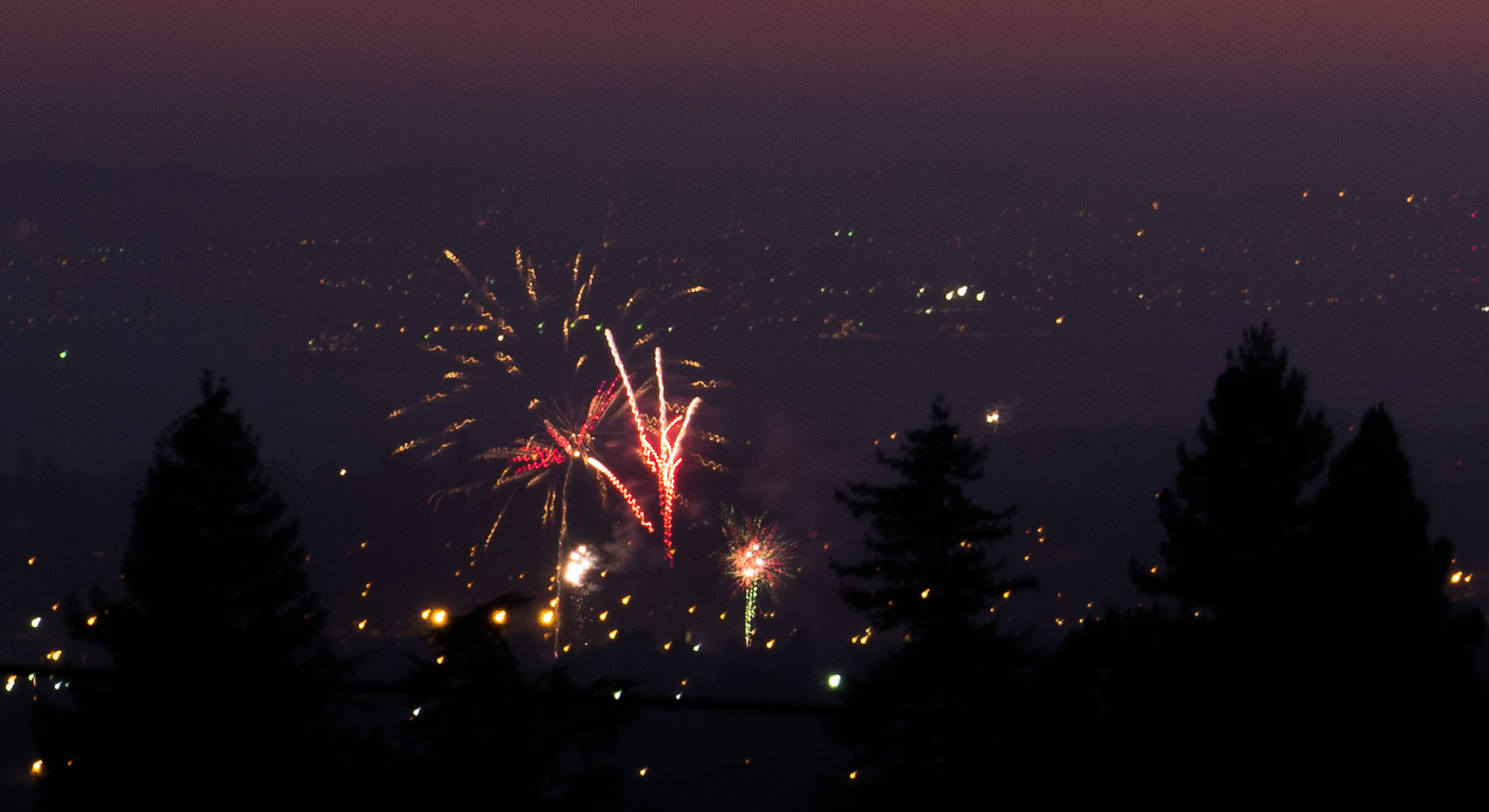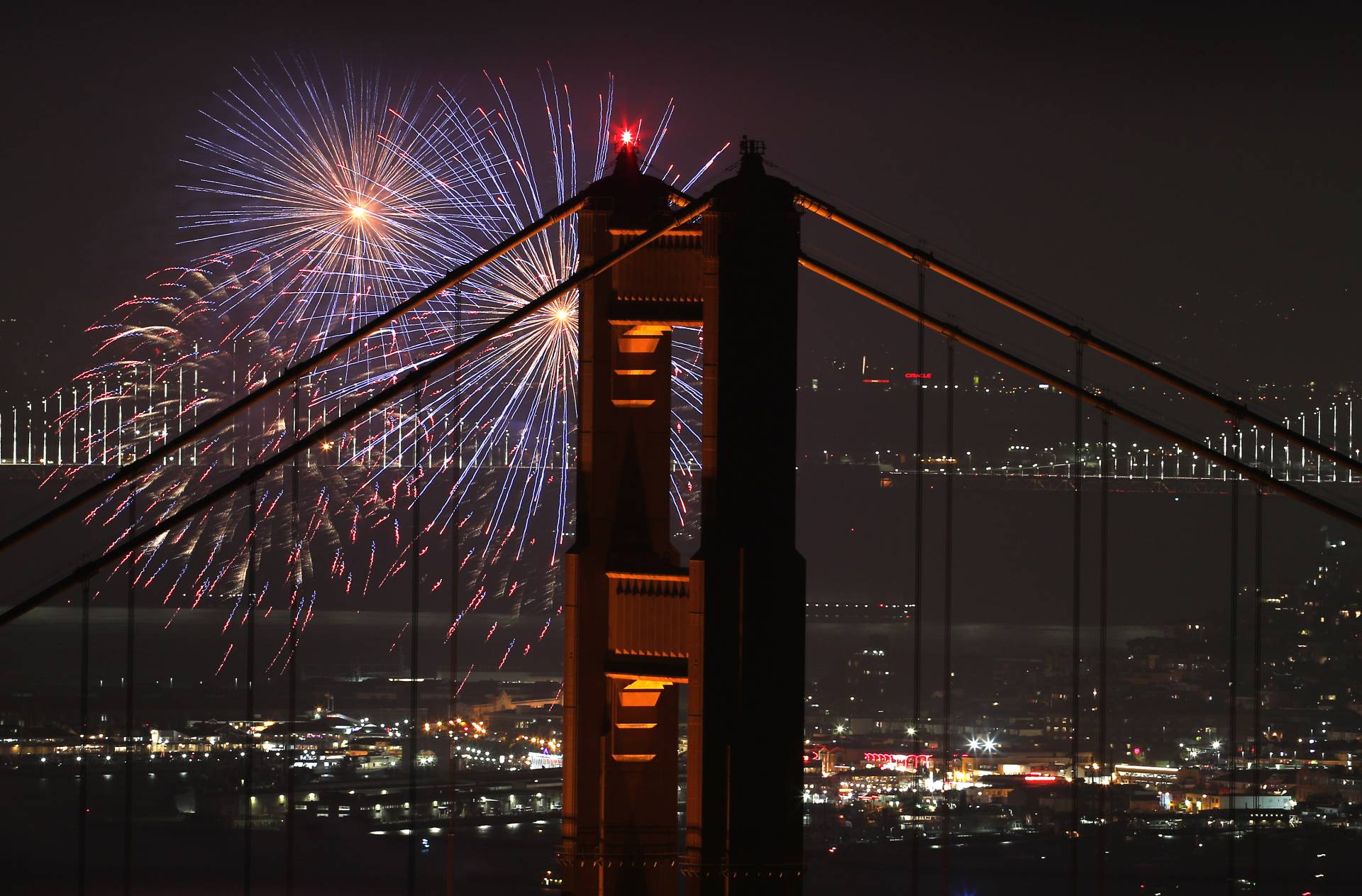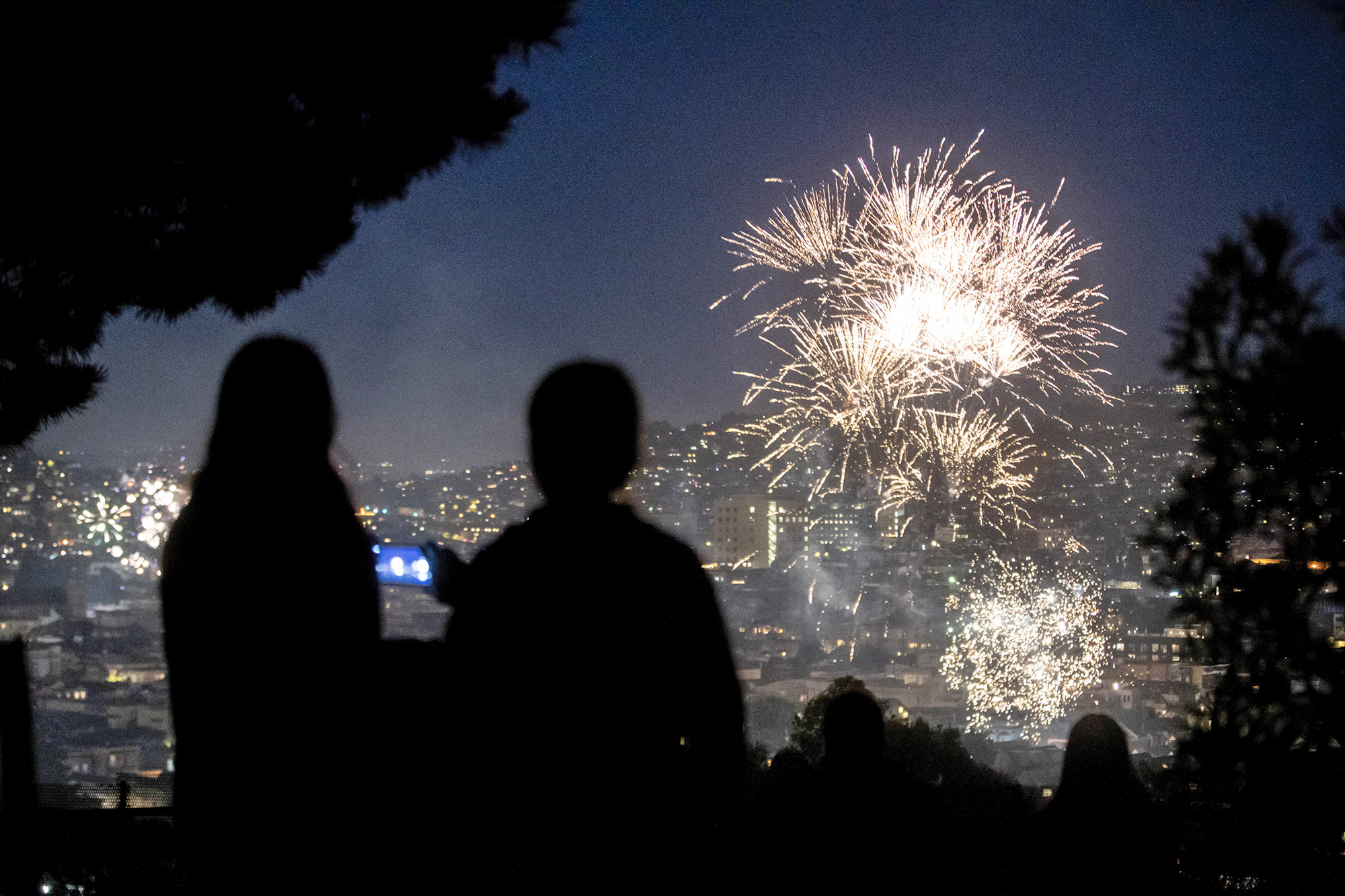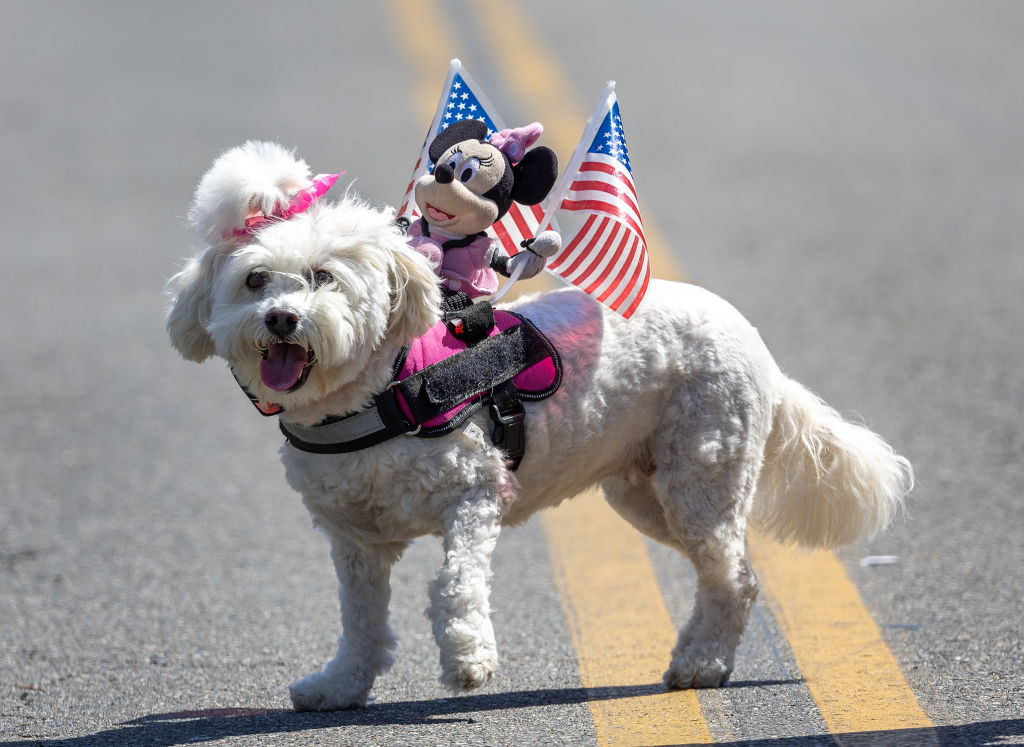The Fourth of July is here, and it’s time to prepare for a weekend of fireworks displays and a hot dog or two (or three).
But unofficial fireworks can lead to dangerous outcomes, including burning and seriously injuring people, sparking wildfires, and causing major property damage. Because of this, fireworks are also illegal in many parts of California.
KQED’s updated parts of its 2023 guide to Fourth of July fireworks to list out where you can safely view a show, tips on comforting your pets, or navigating a holiday if you are living with post-traumatic stress disorder.
- Jump straight to:
- The kinds of injuries doctors see every year from fireworks
- Wildfire risks posed by personal fireworks
- Which fireworks are illegal in California
- Firework risks for people living with PTSD
- How to keep your pets calm
Fourth of July firework displays around the Bay Area
Keep in mind that not all fireworks displays are on Thursday, which is the Fourth of July this year. So, double-check the date and time before you head out.
Some of the events listed below also include festivals, vendors, and musical performances before the fireworks show.
- Fisherman’s Wharf in San Francisco at 9:30 p.m.
- Gabrielson Park in Sausalito at 9:15 p.m.
- Mt. Diablo High School in Concord at 9:15 p.m.
- Marina Bay Park in Richmond at 9:15 p.m.
- Lake Cunningham in East San Jose at 9 p.m.
- Almaden Lake Park in San Jose at 9:15 p.m.
- A post-Giants game fireworks display in San Jose at 7 p.m.
- Rivertown in Antioch County at 4 p.m.
- Morgan Hill Outdoor Sports Center in Morgan Hill at 3 p.m.
How personal fireworks — and bonfires — can injure or kill you
Even before considering the huge risks of sparking a wildfire (more on this below), setting off your own fireworks — even when legally purchased in one of the areas that permits them — can be incredibly dangerous.
At a 2023 safety briefing, Dr. Clifford Sheckter, Director of the Regional Burn Center at the Santa Clara Valley Medical Center, gave graphic examples of the kinds of injuries — and even deaths — that attempting to set off your own fireworks can incur. On mortar-style fireworks, Sheckter warned that “if those go off in your hand, you are losing fingers, if not your whole hand. If this goes off by your face, you could end up blind.”
And while sparklers might strike many folks as a small, innocuous kind of personal firework on July Fourth, Sheckter noted that not only are they illegal in many areas, but sparklers can also pose massive threats to children. “Kids think it’s a popsicle: They put it in their mouths, they put it near their faces, they give themselves pretty severe burns and end up on the burn unit for one to two weeks,” he warned.
Lt. Jonathan Baxter, a spokesperson for the San Francisco Fire Department, also told us in 2019 that sparklers are illegal in San Francisco. “Sparklers burn at 1,800 degrees, which is [hot] enough to burn gold,” he says. “So if it can burn gold, you can imagine what it can do to your hand.”
Sheckter particularly stresses the importance of not mixing alcohol and drugs with fireworks or fire, noting that “one of the most common injuries” his burns unit sees around the Fourth of July is incurred by people “mixing alcohol and bonfires.”
“If you get wasted and fall into a bonfire, you’re either going to die, or you’re going to end up severely burned and on my burn unit for the next six months,” Sheckter says, warning of so-called sixth-degree burns that can extend down into a person’s bones. Injuries from these kinds of burns, Sheckter says, are very difficult to reconstruct and often necessitate tissue grafts or prostheses. Curious children wandering around campsites and grasping coals, embers or fire pit rings are also a common source of pediatric injuries.
How personal fireworks can spark wildfires at this time of year

In 2021, over 150 fire scientists were moved enough to join many fire officials across the West in urging residents to abandon their plans to launch personal fireworks on July Fourth because of the wildfire risk.
Mishandled fireworks, specifically around the Fourth of July in California, have caused real damage in the past. In 2014, a reveler set off fireworks in Yolo County near the Monticello Dam, igniting a 6,500-acre blaze that took days to put out, injured five firefighters and drove dozens of people from their homes.
Read the full list of tips on preventing causing a wildfire with your fireworks.
The Bay Area Air Quality Management District has also warned that “smoke from exploding fireworks results in elevated levels of particulate matter close to the ground, making it difficult for people to breathe, and may trigger asthma attacks, coughing, wheezing and eye irritation.”
“At the local level, personal fireworks can cause unhealthy buildup in particulate matter pollution over the July 4 holiday,” a 2023 statement reads. “‘Safe and sane’ fireworks, like those purchased at pop-up fireworks stands, contain metal salts used to produce colors and can also cause excessive smoke.”
Whether you’re planning to light up some fireworks or simply watch them from afar, here are a few safety tips compiled from experts around the state.
Know the regulations in your community
Some types of fireworks — or any fireworks at all — are illegal in California.
“A legal firework has gone under testing by the state to ensure that the characteristics of it are inherently safer than those that don’t get our safety seal,” Daniel Berlant, deputy director of community wildfire preparedness and mitigation at Cal Fire, told KQED in 2022. “Really, any firework that explodes, goes up in the air or moves around the ground uncontrollably are considered illegal fireworks.”
Check this list to find out whether fireworks are legal in your city this Fourth of July (be sure to check the date.) Check this list to see which communities allow the sale of “Safe and Sane” fireworks (PDF).
If your community is not on this list, it is likely illegal — like San Jose, for example.
Fireworks are not permitted in California State Parks.
Know that in some communities, even viewing an illegal fireworks show can get you into hot water. For example, in 2023, the City of San José will now be “holding spectators responsible for their role in the use of dangerous and illegal fireworks” by making anyone who is “knowingly present and watching a fireworks exhibition” subject to a fine.
Use only approved fireworks
Although certain fireworks are legal in much of California, the state has a zero-tolerance policy for both the sale and use of illegal fireworks, and violators may face fines of up to $50,000 and jail time.



